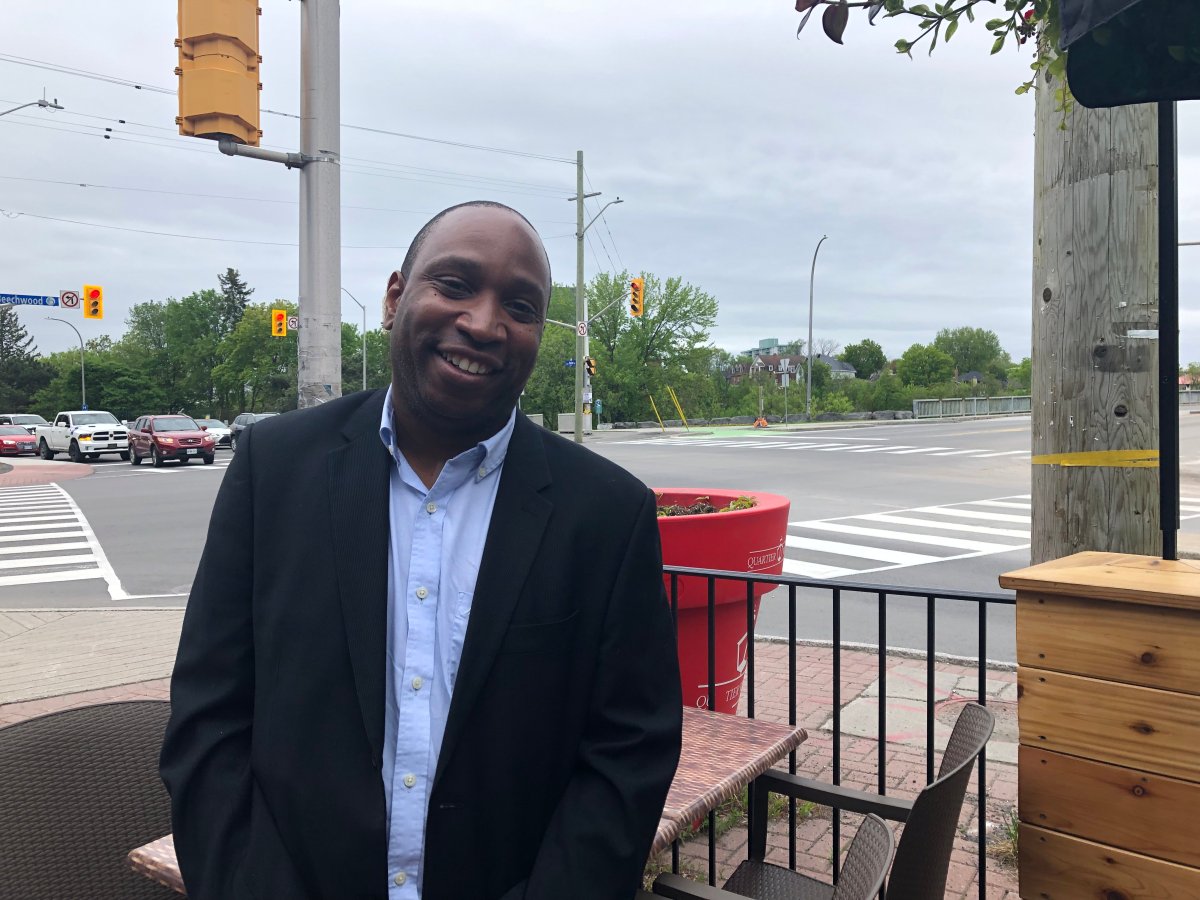Ottawa’s lone Black councillor believes a new process of public consultation can set the city on the path to dismantle systemic racism at the municipal level and improve the lives of the city’s Black and racialized residents.

The City of Ottawa has launched an online survey and a series of community planning sessions to inform the foundation of its anti-racism secretariat, a municipal body that will look to identify race-based discrimination in the city’s policies, workplace practices and community services. Recommendations from the consultation will come back to city council by the end of the year.
Though the city is among many Canadian institutions taking a hard look at its role in systemic racism in the wake of this past summer’s mass anti-Black racism protests in response to the killing of George Floyd, the roots of the anti-racism secretariat trace back to a 2019 incident in Rideau-Rockcliffe Ward.

Rawlson King had just been elected the city’s first-ever Black councillor in April 2019. Recounting the first few weeks in office, he says there was “great elation” in the Black community to see one of their own take a seat at the council table.
But a month after his election, a Black family in his ward was shocked to see the N-word spray painted on their garage door.
The community rallied together after that incident, King tells Global News, and resolved that some good should come out of it.
Striving for systemic change, the community members met with the acting chief of police in Ottawa and helped to spur the return of the hate crimes unit.

King also began working then on instituting an anti-racism secretariat, which he secured funding for in the 2020 budget. He says the secretariat itself is the result of community-driven leadership in response to recurring problems like the spray painting incident in his ward, but aimed at the city’s institutions more than individual bad actors.
“They recognized that there would always be individual acts of racism. But the key thing that they really could not tolerate is systemic racism when dealing with their government,” King says.
Starting in late January, public consultations have taken the form of virtual sessions divided by communities in Ottawa that have traditionally been marginalized or the targets of hate crime, such as Black or Asian residents.
The sessions continued this week with a consultation with the Jewish community on Monday and a session with Muslim residents coming up on Friday. A future session will consult specifically with Indigenous communities.
King says the goal of these consultations isn’t to figure out what the problems facing these communities are — systemic inequality and discrimination have been well-studied in the past 30, 40 years, he says.
Rather, it’s a chance for the city to hear directly from the residents themselves about how its services can improve and better serve the needs of individual communities.
For example, issues of employment. While 25 per cent of Ottawa’s total population is racialized, only 12.5 per cent of the city’s workforce is non-white.
King says hiring more Black and Indigenous people and people of colour to work at the city, especially in management roles, will help residents feel seen in their municipal services, in turn serving them better.
King himself is an example of the phenomenon, he says.
Though he was officially made city council’s inaugural liaison for anti-racism and ethnocultural relations in June, he says he’s basically be serving in that role since his election.
Back in 2019, when he first came into office, he says he started hearing regularly from Black constituents in wards across the city. When Black residents wanted to speak to school board officials about children in their community facing higher rates of expulsion, it was King they would call to broker the meeting.
“Representation matters. People felt comfortable calling me,” he says.
But members of Ottawa’s Black community and their allies do not always feel heard.
Such has been the case at numerous meetings of the Ottawa Police Services Board since this past summer, where delegations have often been cut off for not adhering to the narrow format of the discussion topic at hand, be it on the topic of anti-Black violence, emergency mental health response or the service’s budget.

King, who joined the board this past fall, says the restrictive mandate of the OPSB has made proper engagement difficult. That’s why he voted against the $13.2-million increase to the service’s budget in 2021, because he felt the board hadn’t shown it was listening to the needs to the community.
He said the board is considering “extraordinary measures” to better engage with community members, including branching into a mediation role.
“The tools aren’t as great as they should be,” he says. “I think that there’s work at the police services board to experiment with innovation so that we can enhance the types of engagement.”
Despite bumps in the road at the police board, King is proud of recent work at the city to improve outcomes for racialized residents.
Ottawa Public Health has worked closely with its partners such as the Ottawa Local Immigrant Partnership in attempts to mitigate the disproportionate impact of the COVID-19 pandemic on marginalized residents, especially in the Black community. Tailoring messaging to individual communities can bolster trust in testing, vaccines and the health system in general, King says.
Economically, he also sees recognition at the municipal level that improving equity for disadvantaged residents can bolster the city’s bottom line. City council will consider a motion at its Wednesday meeting this week calling to add more social criteria to its procurement strategy, one way of ensuring racialized business owners get fair shots at the millions of dollars in contracts up for grabs as part of the city’s COVID-19 recovery efforts.
King says he’s especially pleased to kick off these public consultations in earnest in and around Black History Month.
While he notes the value in remembering the contributions of Black Canadians, as well as the systemic oppression they have faced in Canada, he says days, weeks and months to honour the past often fail to spur conversations about the future.
He hopes that this Black History Month, Ottawa starts to look towards redressing the systemic racism that has marginalized Black residents for centuries.
“I think that that’s meaningful. I’m really gratified that’s happening now,” he says.





Comments